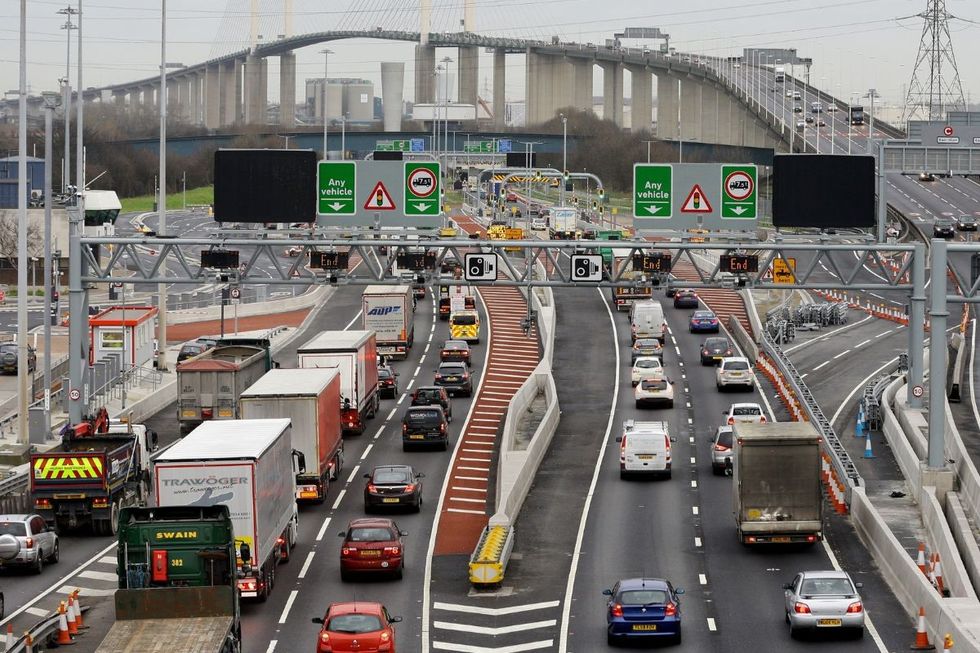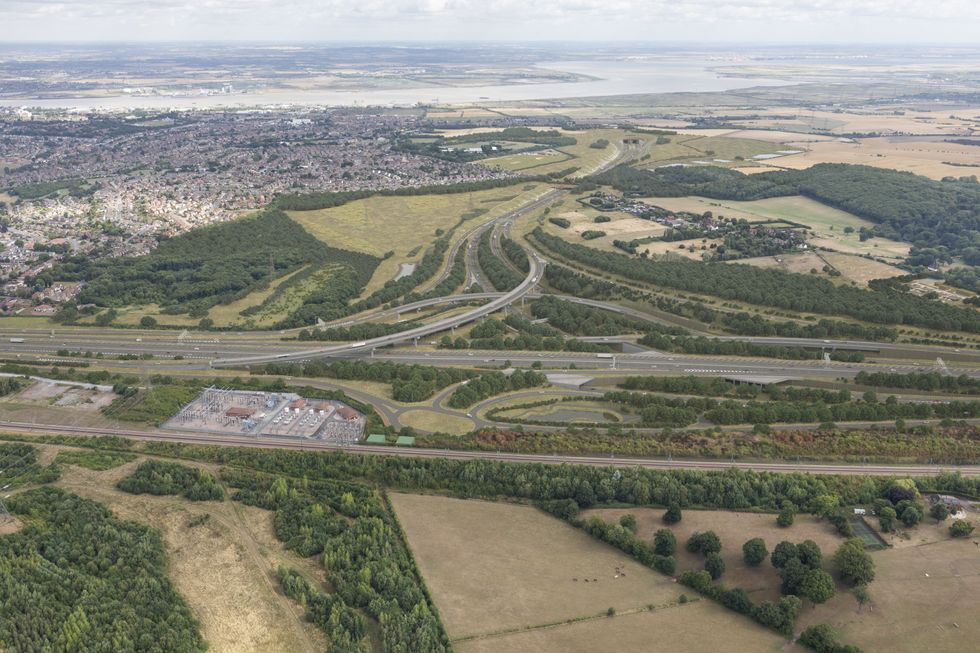Major £10billion road project issued huge update as Labour launches 'new approach'

The Lower Thames Crossing will provide a key access route between Essex and Kent
Don't Miss
Most Read
Latest
The Lower Thames Crossing has been selected as the test case for new environmental regulations which aim to speed up the development of major infrastructure projects.
Natural England has been designated as the primary environmental overseer for the £10billion scheme, marking a significant shift in how such projects navigate regulatory requirements.
Environment Secretary Steve Reed revealed the appointment forms part of broader efforts to eliminate bureaucratic obstacles that have historically delayed construction initiatives.
**ARE YOU READING THIS ON OUR APP? DOWNLOAD NOW FOR THE BEST GB NEWS EXPERIENCE**
The new framework emerged from recommendations in the Corry Review, which examined methods to prevent environmental regulations from stalling development for extended periods.

The Government gave the green light to the Lower Thames Crossing earlier this year
|PA
Transport Secretary Heidi Alexander granted development approval for the 14.5-mile route linking Kent and Essex, despite sustained resistance from local communities and conservation groups who cite environmental damage concerns.
The reformed system positions Natural England to coordinate all environmental protection measures, whilst the Environment Agency and Marine Management Organisation will provide advisory support.
This streamlined structure replaces the previous multi-agency approach that often resulted in prolonged delays.
Officials anticipate the new framework will reduce both timeframes and expenses associated with securing planning permissions and environmental approvals.
READ MORE: Lower Thames Crossing given green light as £9billion road project to go ahead despite mass criticism
 The Lower Thames Crossing would connect to the A2 and M2 in Kent | NATIONAL HIGHWAYS
The Lower Thames Crossing would connect to the A2 and M2 in Kent | NATIONAL HIGHWAYSAny obstacles encountered during the tunnel's construction can be elevated to Defra's newly established infrastructure board for resolution.
Steve Reed emphasised that Britain's convoluted planning regulations have historically obstructed housing and commercial developments. He stated: "Under the Government's Plan for Change, a new approach will see a lead environmental regulator appointed to smooth the system and keep projects firmly on track."
The Labour MP for Streatham and Croydon North added: "This means faster transport, energy and housing developments nationwide that will be better for the economy and properly protect the environment."
The crossing will comprise twin tunnels beneath the River Thames, creating a connection between the A2/M2 and M25 motorways.
LATEST DEVELOPMENTS:
- Drivers urged to save £25,000 on popular electric vehicles with new Labour boost - 'Critical step'
- Motorists to be slapped with £100 penalties as new traffic rules come into effect today impacting thousands
- HMRC car tax update sees drivers face 400% hike in costs as thousands get hit with 'unaffordable' charges
National Highways initially submitted the development application to the Planning Inspectorate in October 2022, triggering an extensive consultation process.
Public hearings commenced in November 2022, allowing residents, statutory bodies and stakeholders to present evidence regarding the proposal's impact.
Chancellor Rachel Reeves confirmed Labour's support for the scheme in January 2025, highlighting its potential to enhance connectivity at Dover, Felixstowe and Harwich ports.
She stated the crossing would "alleviate severe congestion as goods destined to export come from the North, and the Midlands and across the country to markets overseas".
 The Lower Thames Crossing road project is expected to cost around £10billion | NATIONAL HIGHWAYS
The Lower Thames Crossing road project is expected to cost around £10billion | NATIONAL HIGHWAYSThe Chancellor indicated that the Government was "exploring options to privately finance this important project" to ensure taxpayer value.
Local residents have expressed fierce criticism of the development, with one describing the scheme as a "fiasco" and suggesting supporters were "living in cuckoo land" for endorsing an £800million-per-mile project unlikely to substantially reduce congestion.
Conservation organisations have voiced alarm about potential ecological destruction, including Emma Waller from Kent Wildlife Trust, who cautioned that the crossing represented an unsustainable approach to transport infrastructure.
She warned: "The project will destroy irreplaceable habitats, increase carbon emissions, and contribute to long-term environmental degradation. This is not the future we should be building."











